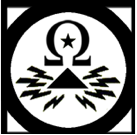Cybercensorship Wars
by Liam Sweeney / February 27, 2012 / 1 Comment
Fighters and Facilitators of Electronic Surveillance in Repressive Regimes
The house of Isa Saharkhiz, an Iranian journalist and founder of the economic newspaper Akhbar-e Eqstad, was raided on June 20, 2009. That’s why he was in hiding 12 days later, when he published an article condemning the 2009 Iranian presidential election and the Supreme Leader, Ayatollah Sayed ’Ali Khamenei. Little did he know, though, that his phone was under surveillance. The government tracked Saharkhiz’s movements using lawful intercept technology that Nokia Siemens provided. He was eventually captured, and is currently a prisoner of conscience in an Iranian detention facility.
- TIMELINE
- August 20, 2010: Isa Saharkhiz files a lawsuit against Nokia Siemens
- March 5, 2011: Egyptian protesters raid State Security Investigation compound, finding Finfisher invoice for €287,000.
- April 6, 2011: Chris Smith introduces updated Global Online Freedom Act.
- October 5, 2011: Telecomix releases Blue Coat Logs implicating the company of involvement with the Syrian government.
- October 10, 2011: The Wall Street Journal reports that the U.S. government is using Electronic Communications Privacy Act to access Jacob Appelbaum’s private data.
- October 13, 2011: Jerry Lucas hosts 10th annual Wiretappers’ Ball, Wikileaks member Jacob Appelbaum ejected.
- October 27, 2011: Blue Coat hires McDermot, Will & Emory to lobby in defense of Telecomix’s allegations that they had provided surveillance software to the Syrian government.
- December 1, 2011: Wikileaks releases Spy Files.
- December 9, 2011: Tatiana Lucas writes letter to the editor of the Wall Street Journal.
- January 1, 2012: Nokia Siemens begins to scale down operations in Iran.
Iranian law stipulates that a defendant can only be detained up to two months while his case is investigated. Saharkhiz has been imprisoned for two and a half years, has reportedly been held in solitary confinement for up to 70 days, and has been beaten and tortured. Among other health problems, Saharkhiz has sustained trauma to three vertebrae in his spine, which could lead to paralysis.
Isa Saharkhiz and his son, Mehdi, brought a lawsuit against Nokia, but it was rejected. Nokia accurately claimed they had not exported illegal surveillance technology. In a press release the company said, “It is true that all modern mobile communications networks include a lawful interception capability; this capability became a standard feature at the insistence of the United States and European nations.”
Isa Saharkhiz is one of many dissidents who have wound up on the wrong side of the lawful intercept technology, a popular venture for tech firms after the PATRIOT Act was passed in 2001. The act required telecommunication companies to cooperate with government requests for information that could be used to track terrorists and the lawful intercept technology has helped to accomplish the act’s goals.
However, the Arab Spring illuminated new depths in this industry, which has been used to track social media users, bloggers, journalists, and editors who chose to support the democracy movement; as a result, they have been detained, tortured, or murdered in the widely-publicized revolts.
There is a vast conflict surrounding this industry. On one side are the facilitators, those involved in the production and distribution of lawful intercept programs as well as some organizations that support the industry. They claim that tools to restrict the flow of certain information and access the private data of targeted individuals protect public welfare and allow security organizations to do their job effectively. On the other side are the fighters, those who render this technology ineffective and those whose goal is to prevent repressive regimes from using this technology.
This conflict takes form in various ways. While the Saharkhiz family failed to bring a lawsuit against Nokia Siemens for the imprisonment of Isa Saharkhiz, increasing government sanctions and an outcry against the proliferation of lawful intercept technology in repressive regimes has led Nokia started to gradually ramp down its business in Iran, beginning January 1, 2012.
However, there are still over one hundred lawful intercept companies from around the world that produce and distribute this technology. While this article is not a comprehensive account of the conflict between the facilitators of lawful intercept technologies and their fighters, it does highlight the main characters and clashes of 2011.
Fighter: Telecomix
Telecomix is a volunteer organization that has supported free speech and an open internet in the Middle East. What is impressive about this “sociocyphernetic telecommunist cluster,” as they call themselves, is their ability to translate arcane cybertheory into practical application. In their mind, no protest, protester, blog, or blogger should be persecuted by a dictator’s intelligence organization. This group—or “occurrence” as they prefer to be called—has many ways of subverting regimes and rendering their technology ineffective. Telecomix provides dissidents with applications like Tor, TrueCrypt, and other anonymity devices along with channels designed to export protesters’ tweets when the Internet shuts down. When Egypt lost Internet in January, Telecomix convinced a French and Dutch Internet Service Provider to turn their old modems back on to provide dial-up to Egyptian citizens. The organization even communicated with protesters via radio with Morse code.
Ameer, a Syrian blogger and activist who I spoke to in December 2011, has benefited from Telecomix’s efforts. They provided him with an anonymity program that allows him to maintain his English-language blog. Ameer said, “I can’t do anything without the anonymity tools, it’s very dangerous,” and called Telecomix a “24/7 technical support” for the Syrian revolution. One of his blog entries reveals how the regime tortured protesters for their Facebook passwords.
Most notably, last year Telecomix revealed evidence of California-made intercept software being used to censor and track Syrian rebels like Ameer. The discovery has led to a federal investigation into the manufacturer, Blue Coat.
Facilitator: Blue Coat
Blue Coat, based in Sunnyvale, California, describes itself as a company that offers solutions “to optimize and secure the flow of information to any user, on any network, anywhere.” The firm has been accused of selling one of their solutions to the government of Bashar al-Assad in Syria.
In 2007 Blue Coat delivered a talk at an Intelligence Support Systems for Lawful Interception (ISS) conference in Dubai. The talk was entitled “Practical Examples of Lawful Interception,” and it focused on “blocking pornographic content across the Middle East, Internet Watch Foundation blocking of child pornography in Europe and sites that promote terrorism.”
However, Telecomix revealed that the Syrian government was using Blue Coat products to capture political dissidents. The tech firm found itself with a public relations problem and a pending federal investigation. Blue Coat hired McDermott, Will and Emory, a prestigious law firm, to lobby for them after the Syria logs were released.
Blue Coat claimed ignorance of their software’s use in Syria, believing the product had been destined for the Iraqi government, and sold the company that was under investigation to the private equity firm Thoma Bravo and the Ontario Teachers Pension Plan for $1.3 billion, a 48% premium on the stock’s closing price. The use of Blue Coat technology has also been found in Burma, another regime infamous for crimes against human rights.
Continue reading this article on page 2








One Comment on "Cybercensorship Wars"
Thank you! The patriot act has done more to destroy freedom than any other legislation that I’m aware of. I’ve seen our US companies thrive from business with our own law enforcement people, we don’t even know what they provide at great profit to foreign governments. I have personal experience from the great state of Ohio. I now live in Pa and am glad to have found a public forum that openly discusses the erosian of our liberties. Thank You!